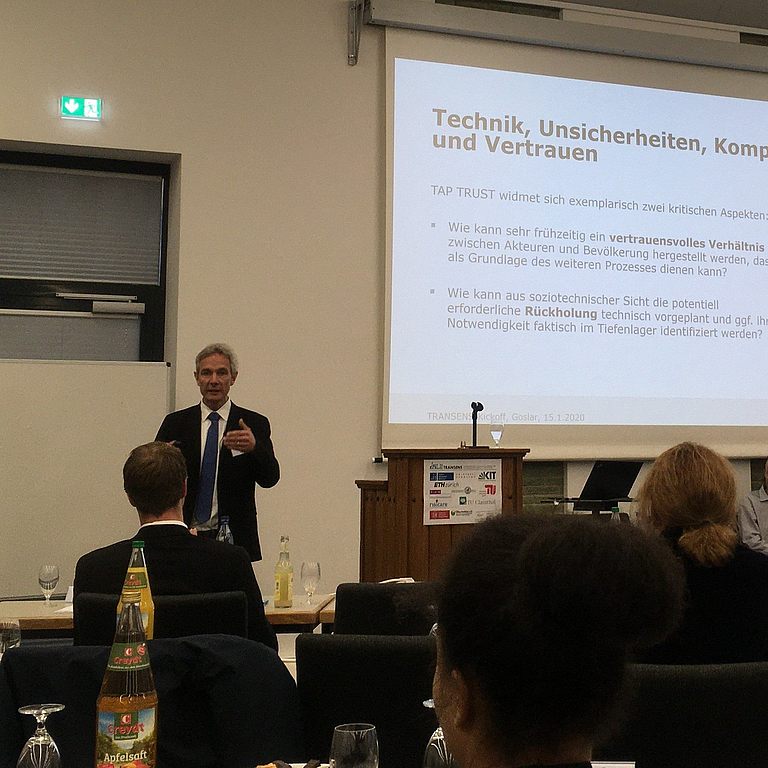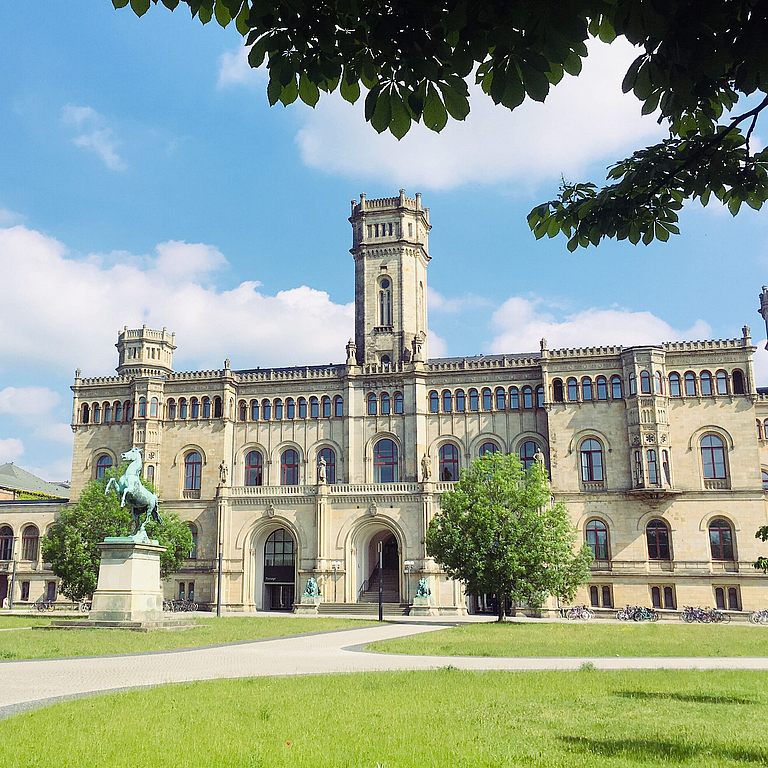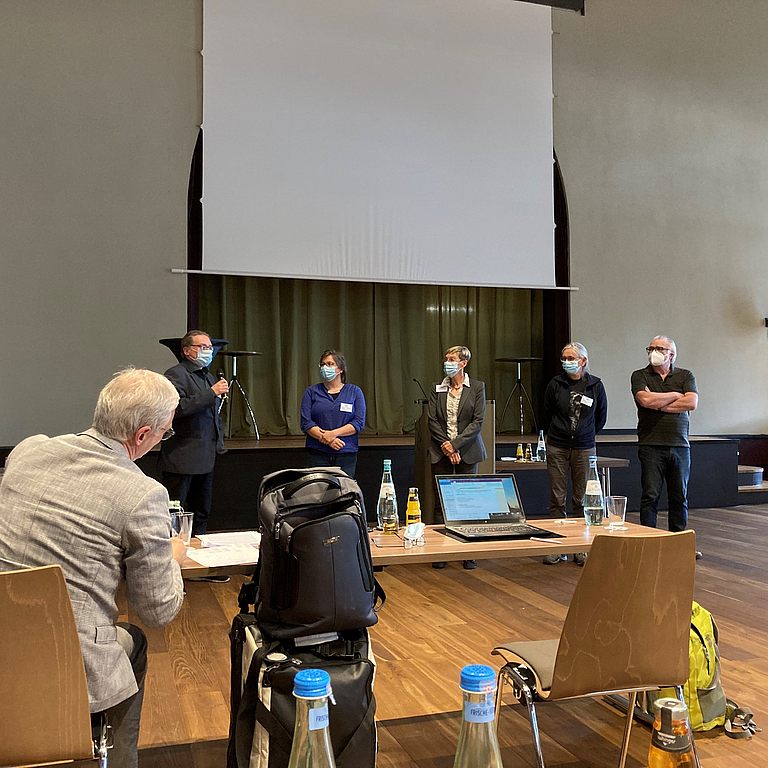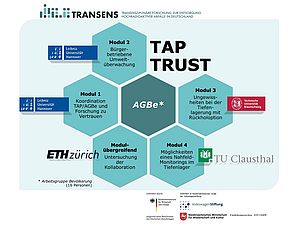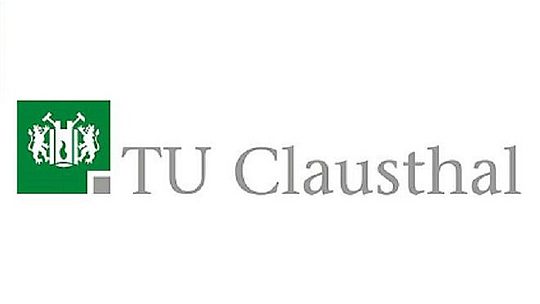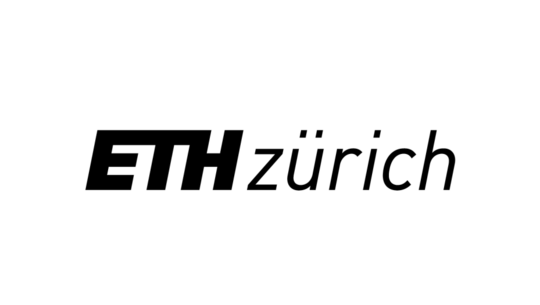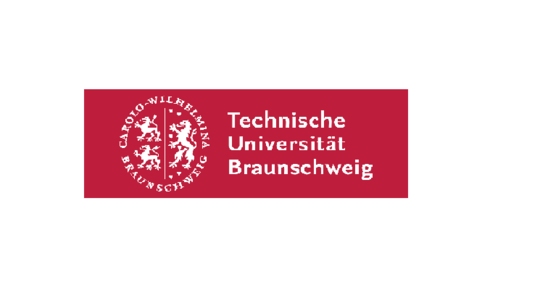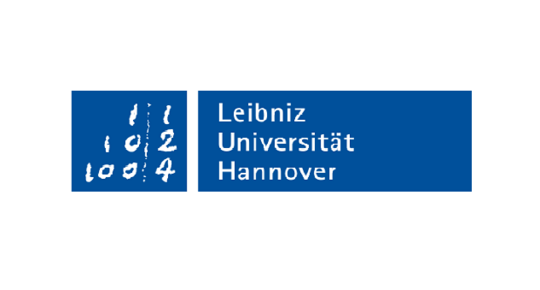TRUST
Technology, uncertainties, complexity and trust
In a procedure that provides for retrieval of stored waste in the event of an unfavorable development of the repository, early consideration must be given to monitoring strategies, decision paths, decision makers, and responsibilities. This is the subject of TAP TRUST.
Responsible: Prof. Dr. Clemens Walther (LUH-IRS)
-
The TRUST work package is about trust. Trust is essential for people to live together. Also for procedures such as the search and selection of a suitable site for a repository for highly radioactive waste, trust between the involved actors1 is absolutely necessary; this also includes the public. In particular, the work package TRUST deals with the trust that laypersons have in the procedure, in authorities as well as in science. How can trust be gained, how does it develop over time, and what are the factors that create trust?
The approach TRUST uses is transdisciplinary. What does that mean? Transdisciplinary means that there is not only an exchange between different branches of science, such as psychology, geology, radiation protection, etc., but that we look beyond the academic-scientific horizon and actively involve interested citizens* and other non-academic actors in the research process. This is done in TRUST in collaboration with the Population Working Group (AGBe), which is an integral part of the work package. This group includes men and women with different employment biographies from different regions of Germany (for the selection process see WORK PROGRAM OF TAP TRUST). They accompany us in the research process, contribute their specific understanding and knowledge of the topic, provide critical input and question our approaches and procedures. At the same time, they get to know scientific research better through this insight and can thus better understand the work of the researchers. In this way, we can learn from each other and be empowered to take other perspectives.
A new process is currently underway to find a final repository for high-level radioactive waste in Germany. One of the points that is discussed again and again is, for example, the issue of retrievability: for example, retrieval of emplaced waste is envisaged in the event of unfavorable development of the repository during the emplacement phase. However, monitoring strategies (e.g., near-field monitoring), decision paths and responsibilities must already be clarified so that retrieval can also be carried out in a practicable and safe manner. This raises questions that will be addressed with the participation of public representatives:
- What does waste retrieval mean for the safety of the general population?
- How trustworthy are measurement data and supervising actors considered to be?
- How do uncertainties and insecurities related to technology and time interact with trust in nuclear waste management?And how are these uncertainties perceived, how does this perception affect trust?
In TAP TRUST we thus connect engineering, natural science and social science disciplines and researchers with actors* from the public and create a transdisciplinary platform with other stakeholders in the field of nuclear waste management. These groups can exchange ideas on this platform and discuss and explore solutions to specific problems.
One example of TRUST's work at the interface between science and society is environmental monitoring. Together, researchers and citizens will develop a program on how citizens affected by a repository can themselves participate in environmental monitoring measures in the future. We want to better understand how the different actors interact and deal with each other. In this way, we can show ways under which conditions trust can grow and be maintained. This means that we also reflect on the joint work of researchers and citizens. This is done in a separate work package Transdisciplinarity Research.
1 In the following, the "gender asterisk" makes it visible as a placeholder sign that people of all genders are addressed equally; unless a formulation explicitly refers to a specific gender.
-
We live in a highly technical society. In this society, not everyone can perform all tasks themselves (such as on a self-sufficient farm); the work is divided among specialists1 . This division of labor must be well thought out, the individual activities must be well coordinated so that a community can function. Consequently, certain social tasks must be assigned to institutions and individuals who have the necessary expertise. In the example of the proper disposal of highly radioactive waste, these are certain institutions, such as the Federal Office for the Safety of Nuclear Waste Disposal (BASE), the Federal Society for Final Disposal (BGE) or experts from various scientific disciplines. Those who do not have the necessary expertise - and this concerns most citizens - must be able to rely on the work of the respective experts, they must trust them. After all, they are supposed to guarantee the safety of nuclear facilities on behalf of society as a whole. Trust in the actors (and institutions) involved therefore plays a central role in safety-relevant issues such as the disposal of nuclear waste.
Trust in experts and institutions is not given per se, but is essentially determined and built up by the (perceived) expertise, integrity, independence and also transparency of the acting actors. Trust is a major challenge in such a controversial topic, which is sometimes also emotionally charged. In TRUST, we therefore investigate which factors are conducive to building trust. Among other things, we are investigating how, in the communication and assessment of knowledge, the ever-present uncertainties and their communication influence the building of trust.
Site selection preparations are already underway, led by BASE and executed by BGE. The future phases of the disposal pathway (site selection, licensing process, construction, emplacement phase, etc.) are also casting their shadows ahead and influencing the site selection process. The foundation for trust must be laid for these phases as well. Appropriate instruments of procedural participation can help in this process.
This leads to the following guiding questions, which determine our topic corridor (topic corridor here means that the topics still allow room for design by participants from civil society for transdisciplinary research ):
- How do technology- and time-related uncertainties and insecurities and trust interact in nuclear waste management (and what difficulties arise for the associated decision-making processes)?
- An important social science question revolves around the role of trust in responsible actors (e.g., BGE) and regulatory bodies. In TRUST, technical equipment and free training will be provided to enable citizens to measure environmental radioactivity on their own. Of interest to TRANSENS is, for example, whether and how the perception of measurement results and their uncertainties is changing?
- The scientific-technical questions in TRUST are also complex in themselves and have to do with uncertainties in content and time, and so the question arises as to how uncertainties and insecurities in the course of technical-scientific processes can be communicated and dealt with. In TRUST, this is worked out using the example of the models and techniques necessary for monitoring a repository.
- In summary, this means for TRUST as a question: How can engineering and scientific research and its communication be designed so that it generates added value in the sense of confidence building in nuclear waste disposal in conjunction with social science research approaches and with the inclusion of actors from the general population?
The technical disciplines have a dual role to play here. On the one hand, they create necessary basic knowledge for a better understanding of the above-mentioned construction and emplacement phase and the possibly required retrieval; on the other hand, they are part of the interaction of scientific-technical expertise, system-immanent uncertainties, communication, public participation, and trust to be investigated (cf. transdisciplinarity research).
1 In the following, the "gender asterisk" makes visible as a placeholder sign that people of all genders are addressed equally; unless a formulation explicitly refers to a specific gender.
-
TRUST consists of four modules (see diagram) involving the Population Working Group (AGBe) and groups of different scientific expertise: transdisciplinary research (ETH-TdLab), radioecology and radiation protection and social psychology (LUH-IRS), engineering (TUBS-IGG) and geomechanics (TUC-LfDG):
- Module 1 (LUH-IRS, ETH-TdLab) reflects the overarching framework of the entire TAP. Here, we are fundamentally concerned with the interplay between scientists* and representatives of the general population (AGBe - see below), as well as the importance of trust,
- Module 2 (LUH-IRS, ETH-TdLab) involves citizens in the collection and analysis of environmental monitoring data,
- Module 3 (TUBS-IGG) addresses the joint determination of uncertainties and acceptability in certain technical aspects of a potentially required retrieval,
- Module 4 (TUC-LfDG) includes discourse on near-field monitoring for disposal.
The AGBe plays a central role within the work of TRUST. This group includes individuals of different age types, both genders, and different professions from nine different states. It was recruited from an online start-up survey in which about 5000 people participated. About 700 of these had expressed interest in joining AGBe. Using various criteria (e.g., basic technical understanding, communication skills, etc.), 17 people were finally selected to participate in AGBe in an elaborate, staged process.
The AGBe met for the first time in September 2020 for a founding meeting in Hanover and began its work.
1 In the following, the "gender asterisk" is used as a placeholder to indicate that people of all genders are addressed equally, unless a formulation explicitly refers to a particular gender.
-
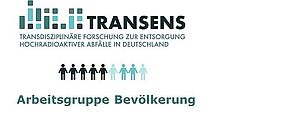
Function and Recruitment of the Population Working Group in TRANSENS
In the TRANSENS research project, a group of people from outside the scientific community will be involved throughout the project duration - the Population Working Group (AGBe for short). After about 700 persons had expressed their interest in an AGBe participation in a representative online survey (about 5,000 respondents) developed by the Institute for Radioecology and Radiation Protection (IRS, LU Hannover) and ETH Zurich in spring 2020, 17 persons could finally be selected (nine women and eight men) via a criterion-guided, multi-stage procedure. In this process, socio-psychological criteria (e.g. ability to work in a team) as well as a balanced ratio of educational and age groups were taken into account (see in detail: Recruitment report). In addition, as an 'extended peer community' (Funtowicz & Ravetz, 1993), the individuals should not be experts or stakeholders in the field of final disposal.
On September 26, 2020, the inaugural meeting was held in Hannover, Germany, with 15 individuals from seven German states traveling to the meeting.
The AGBe currently consists of 16 members who contribute their opinions and knowledge to the research process and reflect and work on different issues together with the project participants from different scientific disciplines. Below are reports on previous workshops.
